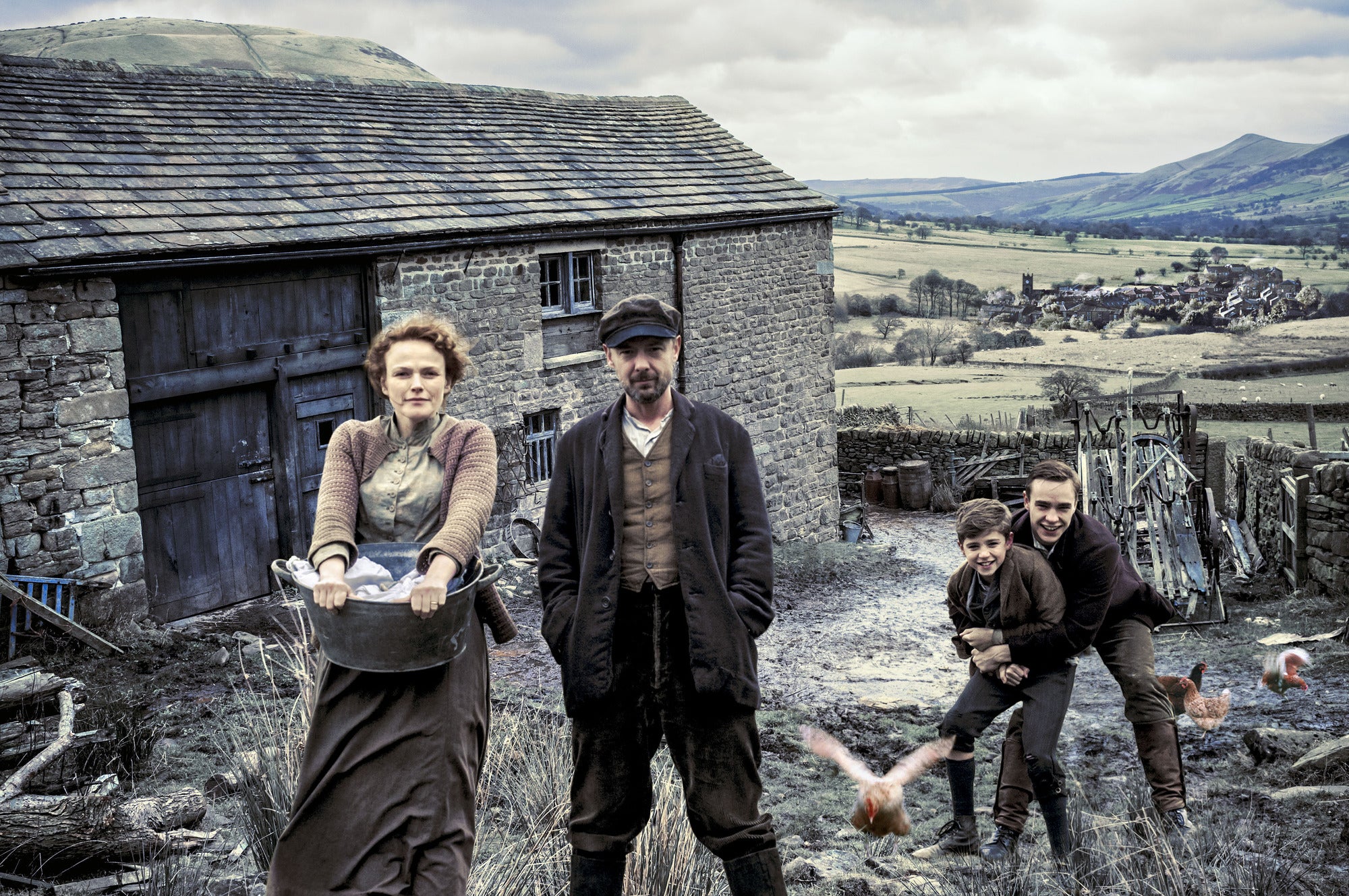New BBC show ‘The Village’ is okay, but too much bad rural-set TV has put our brains out to pasture
We are living through fascinating times, so why do we prefer fairy-tales of good and evil to honest thought-provoking drama?

Your support helps us to tell the story
From reproductive rights to climate change to Big Tech, The Independent is on the ground when the story is developing. Whether it's investigating the financials of Elon Musk's pro-Trump PAC or producing our latest documentary, 'The A Word', which shines a light on the American women fighting for reproductive rights, we know how important it is to parse out the facts from the messaging.
At such a critical moment in US history, we need reporters on the ground. Your donation allows us to keep sending journalists to speak to both sides of the story.
The Independent is trusted by Americans across the entire political spectrum. And unlike many other quality news outlets, we choose not to lock Americans out of our reporting and analysis with paywalls. We believe quality journalism should be available to everyone, paid for by those who can afford it.
Your support makes all the difference.Sunday nights have a special place in British life. The fun is over, another week is approaching and, on the main TV channels, schedulers try to reflect the mood of the moment. There will be a gently middle-aged programme, The Antiques Road Show or Countryfile, and a film all the family can enjoy, perhaps a re-run of well-loved situation comedy.
In pride of place will be a traditional, heart-warming drama series which, with its fantasy view of the world, will line the stomach of viewers for the half-truths they will be fed during the week ahead. It will be usually be set in the past, or in the countryside, or - best of all - both.
The BBC's new series The Village, while obeying these basic guidelines, has laid claim to being an altogether superior product. It is ambitious, potentially covering 100 years and has been compared to the 32-part German series of the 1980s Heimat. A lot of money has been spent on it, the production values are good, and some classy actors are involved. Already critics have hailed it as brave, authentic, honest, refreshingly brilliant. One commentator said it reminded her of what the BBC has always been good at.
I was reminded of something else: how a kind of willed stupidity, a preference for a black-or-white version of the past and the present, has descended upon our entertainment and, increasingly, our everyday lives.
Today the key element in British TV drama, and public discourse, is certainty. Anything which is ambiguous or morally complex will be seen as suspect. Here, because the pitch is to de-Downton the past by telling a rural working-class saga, we know the general direction in which a character is heading as soon as he or she appears. The pretty young Methodist with a sympathetic face and the abused farmer's wife will grow stronger. The impoverished, violent farmer will be trapped by his tragic past. There is a psychopathic teacher, some snooty, heartless toffs, a pub full of working men who look significantly at one another when a stranger walks in. Now and then the villagers form a mob and march across fields, shaking their authentic pitchforks and scythes.
This is another basic rule of screen drama, which has been in place since Sam Peckinpah's Straw Dogs: villagers are either good, salt-of-the-earth types or stupid and easily roused to anger. Either way, they are usually moronic. There will be none of the subtle gradations of character that were to be found, for example, in that urban epic Our Friends in the North.
There is a niggling worry that more than mere entertainment is at work here. We are served up stereotypes in our entertainment because that is what we have come to expect in the real world. Bankers, priests, old DJs, politicians: one has only to say the words to know the accepted, prevailing view.
This corrosive stupidity, a preference for unthinking emotion over analysis, is eating into the political process. In the weekend's press, there was a story of how a lobbying group, purportedly representing business interests but in fact part-sponsored by the Government, have been campaigning for the HS2 rail link. Rather than using the trickier argument about business people saving time, the lobbyists claimed that posh nimbies in the Cotswolds were putting their hunting rights above the honest aspirations of impoverished, jobless northerners. This "narrative" worked a treat.
We are living through fascinating times, but prefer fairy-tales of good and evil to honest thought. Imagine trying to pitch to one of our leading broadcasters a series which really caught the mood of recent times: a young, ambitious, sympathetically portrayed banker caught up in the banking crisis, say, or an ageing entertainer haunted by his behaviour in the 1960s when different rules of acceptable behaviour applied, or a politician trying to do the right thing but increasingly obliged to compromise and cut corners.
There is no room for that kind of drama, because it will offend those who prefer their morality in black and white. Instead we tolerate and accept clichés of thought, both on our screens and in our lives.
Join our commenting forum
Join thought-provoking conversations, follow other Independent readers and see their replies
Comments